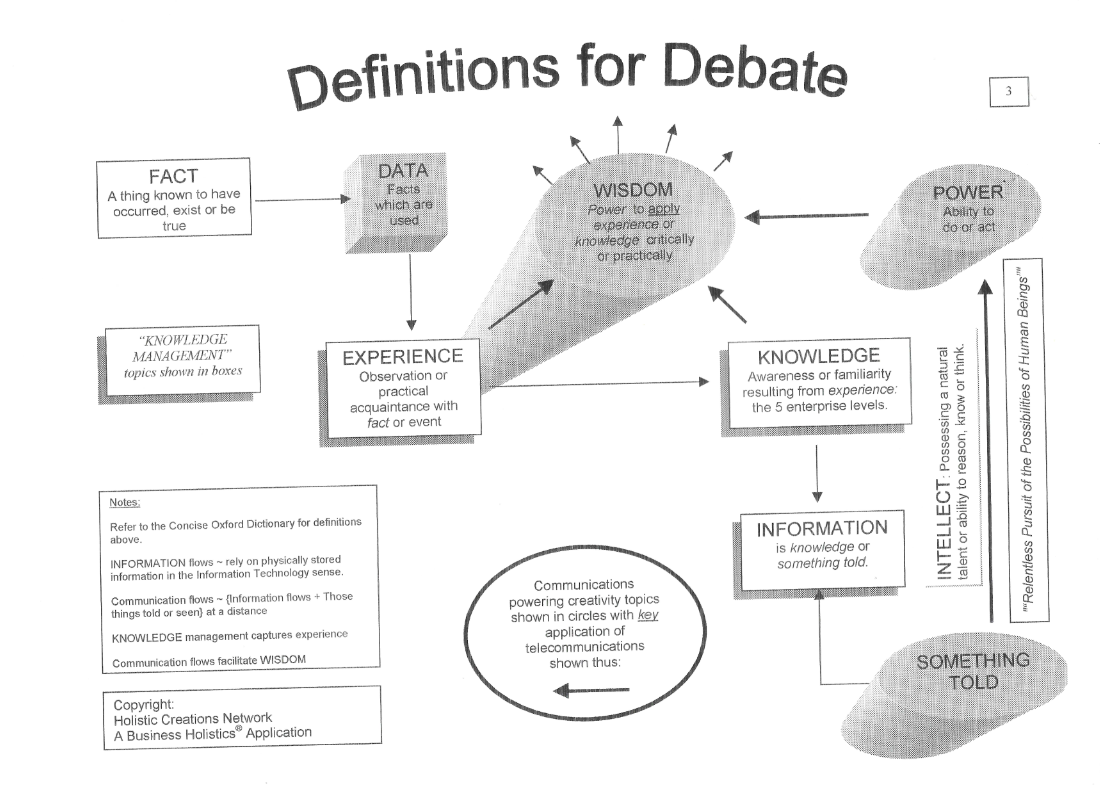Intelligence? (D4)

Technology is now a dominant driver of many business strategies, especially "Artificial Intelligence" (AI). Is this wise? Is it not now time for business strategy to grab the initiative and drive technology development and its applications?
25 years ago, "knowledge management" was the rage. Clearly a misnomer, but a new buzz phrase seized upon by the software giants keen to apply further their data base management systems as knowledge depositaries. The focus was on data: whereas a more informed choice was to identify and record those people who knew things and whose wisdom could be tapped to navigate nuanced variations of deceptively similar situations.
To that end, communities of practice (COPs) of various types emerged to harness the interests and capabilities of individuals [1] and pioneers in making sense of knowledge "management" guided us [2].
Even then, it was recognised that the collaborative interactions between participants was crucial. This was represented as informal networks weaving between the formal processes of any enterprise...a phenomenon which VES can easily model.
Hence, 25 years ago, serious attempts were made to shrug of the tentacles of technology pushers and step back to appraise fundamentals. One of my contributions was entitled "Definitions for Debate." I invite readers to download and distribute this chart to colleagues as they ponder the notion of Artificial Intelligence. What is it, really?

Why not start with the items encircled red?
Note that Intelligence is the Intellect / understanding of a person or animals quickness of understanding / wisdom: or an intelligent or rational being.
Where do algorithms fit in?
Recap that humans interact, with feelings and emotion, and that Intelligence is a core subsystem for assessing an enterprise viability.
As to the future: "superintelligence," driven by AI algorithmic advances and quantum computing WILL pose a huge threat to the control humans have over their destiny. It is easy to demonstrate this for an enterprise using VES and will feature in a Summer post in the VES Intelligence store... Now appearing as (D8).
[1] E. Wenger, Communities of Practice - Learning, Meaning, and Identity, Cambridge: Cambridge University Press, 1998.
[2] Some examples are: Karl-Eric Sveiby, Hubert Saint-Onge, Verna Allee, Etienne Wenger, George Por, Charles Savage and Leif Edvinsson.



